Disney+ - Marvel Zombies Turns Fan Service Into Genuine Fear
By Mulder, 24 september 2025
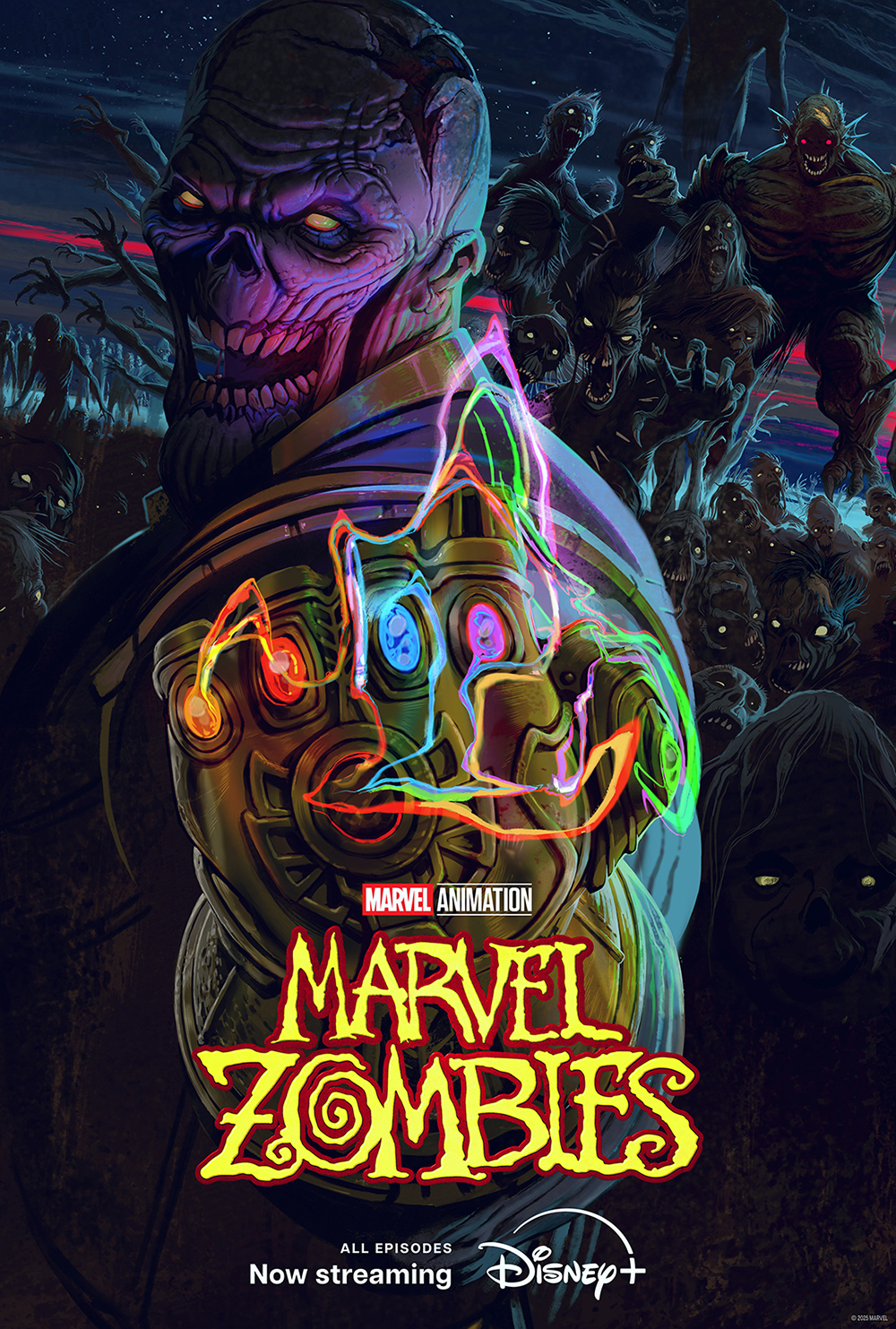
Two decades after Robert Kirkman and Sean Phillips turned a cheeky Elseworlds gag into a cult phenomenon, Marvel returns to the graveyard with Marvel Zombies and, fittingly, chooses animation—the one medium in the franchise still willing to make a mess. Directed by Bryan Andrews and written by Zeb Wells, this four-episode, TV-MA spin-off of What If…? isn’t a panel-for-panel revival of the 2005 comics by Robert Kirkman, Greg Land, Sean Phillips, and Mark Millar so much as a remix of the MCU’s greatest hits, replayed under a blood-red filter. The premise is simple enough—an incurable plague has reduced Earth’s mightiest to Earth’s hungriest—yet the series lives in the tension between fan-service spectacle and genuine horror, between the multiversal safety net and the promise that, here at least, plot armor tears like paper. The result isn’t definitive, but it is distinctive: a show that remembers zombies are scary because they eat you, and superheroes are fascinating because they break when you take away the certainty of tomorrow.
Framed largely through Iman Vellani’s buoyant, stubbornly hopeful Kamala Khan, the opening chapter locks onto a trio that instantly clicks: Iman Vellani, Hailee Steinfeld, and Dominique Thorne as Kamala, Kate, and Riri moving through a bombed-out Manhattan with the improvisational swagger the live-action MCU keeps teasing and then shelving. That hangout energy—half sleepover, half fire drill—becomes the emotional thermostat for a series that keeps swerving between gallows humor and arterial spray. There’s an anecdotal pleasure in the way these three problem-solve on the fly: duct-taping high concepts to low resources, talking each other through panic, and, in one morbidly funny beat, trusting a headless suit of Iron Man armor guided by Kerry Condon’s F.R.I.D.A.Y. to shoulder the kind of responsibility that once needed Robert Downey Jr.’s eyebrows. When the show later widens the road to make room for Florence Pugh’s Yelena, David Harbour’s Red Guardian, Simu Liu’s Shang-Chi, and Awkwafina’s Katy, the dynamic shifts from scrappy survival to convoy epic, and you feel the palette thicken—Mad Max detours, improvised cavalry charges, and the kind of “what if” mash-ups the Multiverse Saga keeps promising on paper.
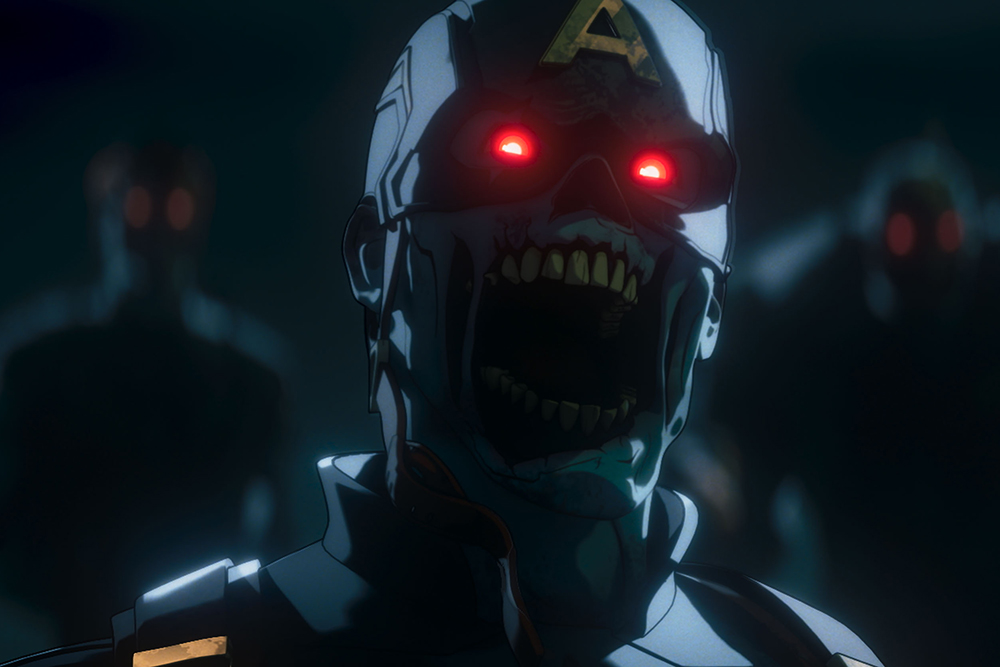
The violence, long teased and too often declawed elsewhere, finally has teeth. The San Francisco flashback—cable cars running red, loose Pym particles turning the city into a scale-warp funhouse, Randall Park’s Jimmy Woo sprinting under collapsing neon—lands like the franchise’s cleanest six-minute action statement in ages. Later, a subterranean clash nods to both Ant-Man and Shang-Chi with kinetic clarity, and the “Valley of the Fallen Gods” concept earns its myth: an elegant excuse to stage impossible matchups on an endless loop, including a grotesquely funny beat with a legless, crawling Captain America that lets the show laugh and wince at the same time. The animation—cel-shaded, with sharp lighting cues and expressive action staging—still reads TV budget in quiet dialogue scenes (faces can go a little video-game NPC), but when bodies start flying and powers overlap, it blooms. The aesthetic won’t convert X-Men ’97 purists, but it gets the one thing this story needs right: motion as momentum, impact as punctuation.
Where Marvel Zombies most deliberately parts company with the Robert Kirkman mythology is in its zombies’ inner lives—or lack thereof. The comics’ nauseating brilliance lay in making the undead talk: despairing, joking, rationing their hunger with the terrible logic of addicts. Here, aside from the chilling intelligence of Elizabeth Olsen’s Wanda as “Queen of the Dead,” the horde is more weapon than character—directed malice rather than gnawing conscience. Purists will miss the moral rot of sentient cannibals; newcomers may appreciate the clarity. What the series gains is shape: a bleak road movie with clean antagonism and room for human choices to matter. What it loses is the comic’s nastiest idea—that heroism can survive inside a monster long enough to make the next bite unforgivable. The show compensates by turning the living into the ethically complicated ones: a Raft now ruled by Baron Zemo (voiced here by Rama Vallury, not Daniel Brühl) reframes “security vs. freedom” in post-apocalypse terms, and a Black Widow cell that learns to corral the undead by science raises real questions about ends and means that the MCU rarely lets linger.
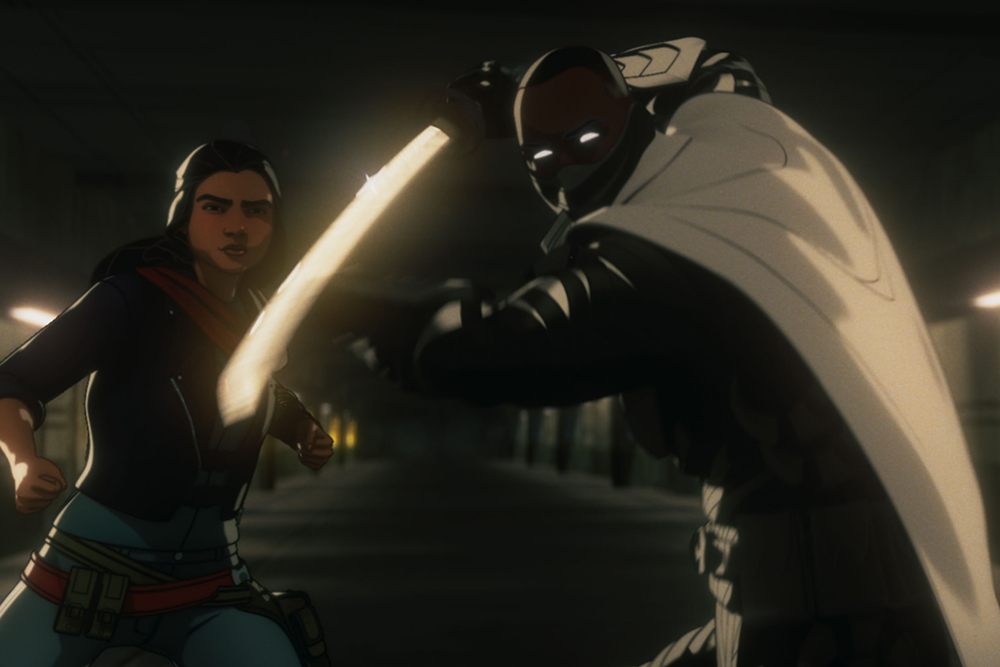
Casting, as ever, is the franchise’s safety rope, and it holds. Iman Vellani carries the show like she’s been waiting for the weight; her Kamala processes grief at speed without surrendering wonder, and that combination steadies the tone every time quips threaten to sand down the stakes. Florence Pugh and David Harbour import the bruised warmth of their Thunderbolts family, with Harbour especially finding a father-daughter ache opposite Kamala that the live-action films barely attempted. Simu Liu has the right, unfussy heroism for animation; Awkwafina’s delivery fits the wasteland road-warrior reinvention; Randall Park steals beats like a second-unit MVP. On the villain bench, Elizabeth Olsen is the show’s nightmare engine—less grieving mother, more necromantic warlord, equal parts siren and sledgehammer. The sore thumb is Blade’s debut-that-isn’t: conceived when a Mahershala Ali film seemed imminent, the show swaps in a Moon Knight hybrid, the so-called Blade Knight, voiced capably by Todd Williams. As action presence, terrific; as character, weirdly placeholder, like a promotional skin you can’t buy yet. It’s an unavoidable production reality, but dramatically it reads as hedging.
Structurally, the series moves with purpose—four half-hours that play like a tight feature—but you can feel the push-pull between miniseries and movie. Episode one’s intimate, ground-level tension gives way to an increasingly busy save-the-world track powered by a S.H.I.E.L.D. MacGuffin and a long-range hail-Mary to the Nova Corps. There’s craft in the escalation (the show wisely avoids the What If…? habit of sticking its landing with exposition), and the finale swings at Endgame scale without blinking. Yet the sprint leaves some good ideas underfed: the Zemo subplot begs for an extra five minutes to chew on its own cynicism; the Namor sequence crackles and then exits; Valkyrie (Tessa Thompson), Spider-Man (Hudson Thames), and even Paul Rudd’s macabre Ant-Man head come off like lively cameos more than payoffs. You understand why—four episodes can’t be everything—but the series repeatedly hints it could have held a second gear, either as a lean D+ movie or as a six-episode run with room to breathe, brood, and sharpen its moral knives.
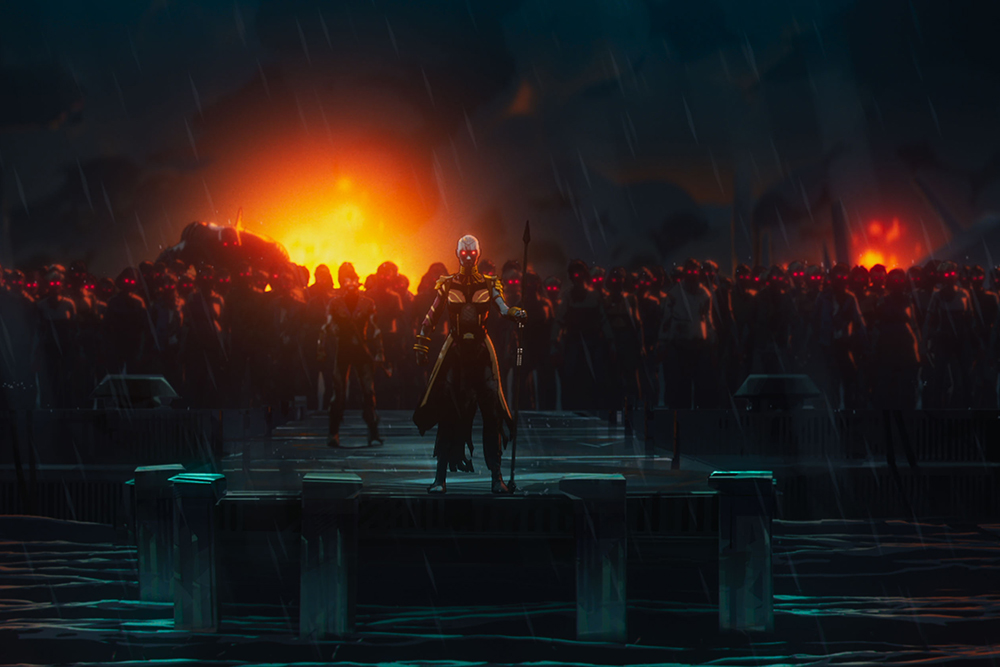
Tonally, Marvel Zombies still carries some MCU baggage. Zeb Wells’ script finds zingers that land (gallows humor is part of the genre’s DNA), but the franchise’s default “so that just happened” patter occasionally undercuts the very dread the TV-MA label invites. When the writing throttles back the banter and lets silence do the scaring—the echo of footsteps in an empty S.H.I.E.L.D. corridor, the flicker of Wanda’s eyes before a slaughter—the show feels genuinely adult, not merely bloodier. And when it leans into the multiverse’s best promise—the right to break toys—Marvel Zombies becomes the clearest argument for animation as the MCU’s risk lab: characters die hard, alliances crack, and a zombie Thanos with stones in hand plays like a punchline to a four-year setup that somehow still stings. If the Multiverse Saga has too often introduced action figures and refused to take them out of the box, this series tears the packaging and doesn’t apologize.
There’s also a quiet, pointed pleasure in the “who saves us” thesis. Again and again, it’s the non-gods—Kamala, Kate, Riri, Yelena, Red Guardian—who solve the unsolvable, steering the plot with grit rather than cosmic destiny. That matters in a franchise whose recent growing pains have been about handing the keys to a new generation while still honoring an old one. Here, the baton pass feels earned by attrition: the old guard, when they appear at all, are either meal or mausoleum, and the future survives by improvising culture out of ruin. In one small, resonant beat, David Harbour’s Red Guardian confesses he still wants that long-teased fight with Captain America; minutes later, the show grants it—in a form both hilarious and tragic—and lets the wish curdle into something like closure. These are the series’ smartest jolts: not just who fights whom, but what it costs to want the fight in the first place.
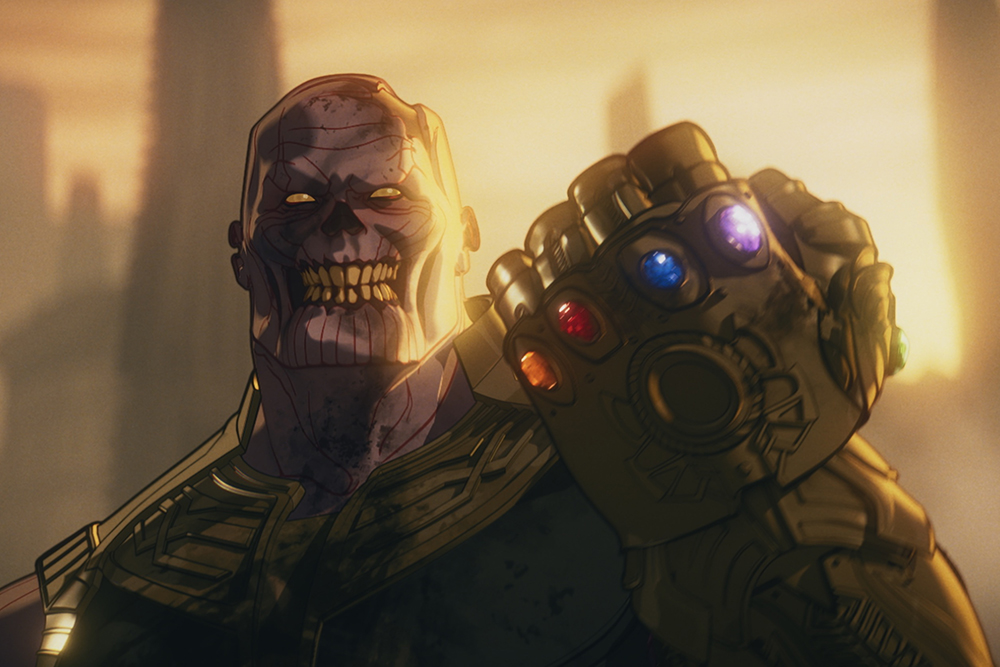
None of this excuses the rough edges. The cel-shaded character animation can go waxy under dialogue; a few needle-drops of MCU self-parody feel three phases late; and the choice to make most zombies voiceless pawns trims away the comics’ queasy philosophical core. But Marvel Zombies earns its keep with conviction: set-pieces that escalate, an emotional center that holds, and a willingness to let hope and horror share the same frame without blinking. If the live-action arm still seems allergic to finality, the animated division proves it can make endings hurt—even when they’re really ellipses daring another season to finish the sentence.
Marvel Zombies is the rare MCU side-quest that feels essential to its own ambitions—a grisly, sometimes glorious proof-of-concept that the house style can survive without the house rules. Iman Vellani anchors, Elizabeth Olsen terrifies, Florence Pugh and David Harbour humanize, Simu Liu and Awkwafina energize, and Todd Williams slices through as a striking, if underwritten, Blade variant that only deepens the curiosity about what Mahershala Ali might eventually bring. It’s not the comic; it’s not trying to be. It’s a pulpy, nerve-steadying march through a universe that finally admits it can lose—and is better to watch because of it.
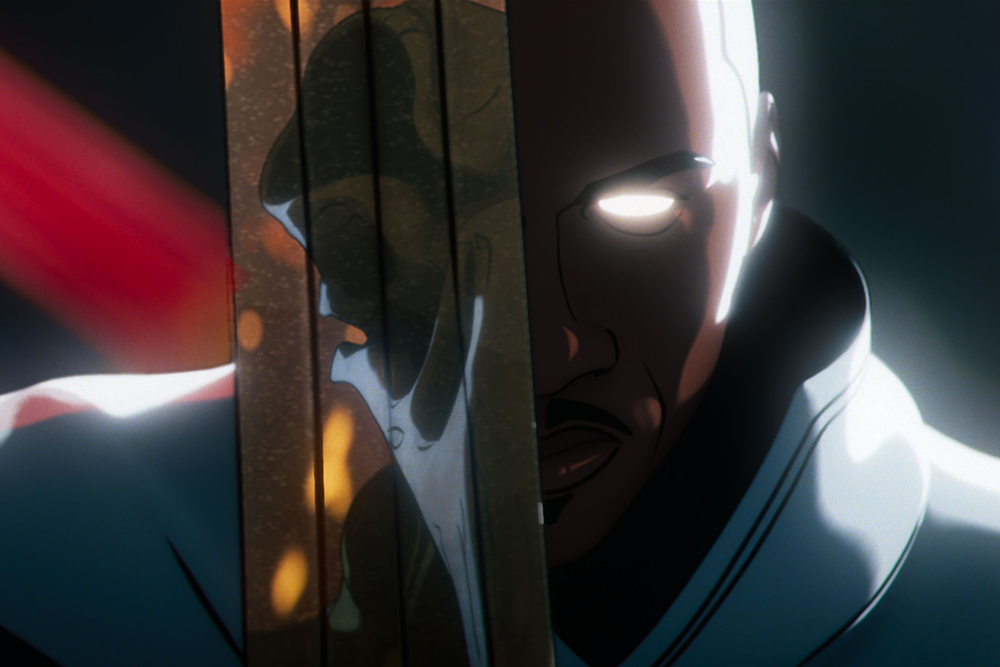
Synopsis :
Marvel Studios animated series that reinvents the Marvel universe by featuring a new generation of heroes fighting against a zombie invasion.
Marvel Zombies
Created by Zeb Wells
Based on Marvel Zombies by Robert Kirkman, Sean Phillips
Showrunner : Bryan Andrews
Written by Zeb Wells
Directed by Bryan Andrews
Starring Awkwafina, David Harbour, Simu Liu, Elizabeth Olsen, Randall Park, Florence Pugh, Paul Rudd, Wyatt Russell, Hailee Steinfeld, Tessa Thompson, Dominique Thorne, Iman Vellani, Todd Williams
Executive producers : Kevin Feige, Louis D'Esposito, Brad Winderbaum, Dana Vasquez-Eberhardt, Zeb Wells, Bryan Andrews
Producers : Danielle Costa, Carrie Wassenaar
Production company : Marvel Studios Animation
Network : Disney+
Photos : Copyright Marvel 2025

